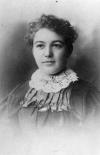Shep's Place Family Tree
Personal Facts and Details
|
| |||||||||||||||||||||||||||||||||||||||||||||||||||||||||||||||||||||||||||||
Notes

Sources

Media


Research Assistant
| There are no research logs attached to this individual. |
Map
|





 Ancestry Chart
Ancestry Chart Circle Diagram
Circle Diagram Descendancy Chart
Descendancy Chart Family Book Chart
Family Book Chart Hourglass Chart
Hourglass Chart Interactive Tree
Interactive Tree Lifespan Chart
Lifespan Chart Pedigree Chart
Pedigree Chart Pedigree Map
Pedigree Map Relationship Chart
Relationship Chart Statistics
Statistics
 Branches
Branches Families
Families Individuals
Individuals MultiMedia
MultiMedia Place Hierarchy
Place Hierarchy Repositories
Repositories Shared Notes
Shared Notes Sources
Sources
 View Day
View Day
 Family Group Report
Family Group Report
 General Search
General Search
 Help with this page
Help with this page
 Technical help contact
Technical help contact

 28
28 Reports
Reports




